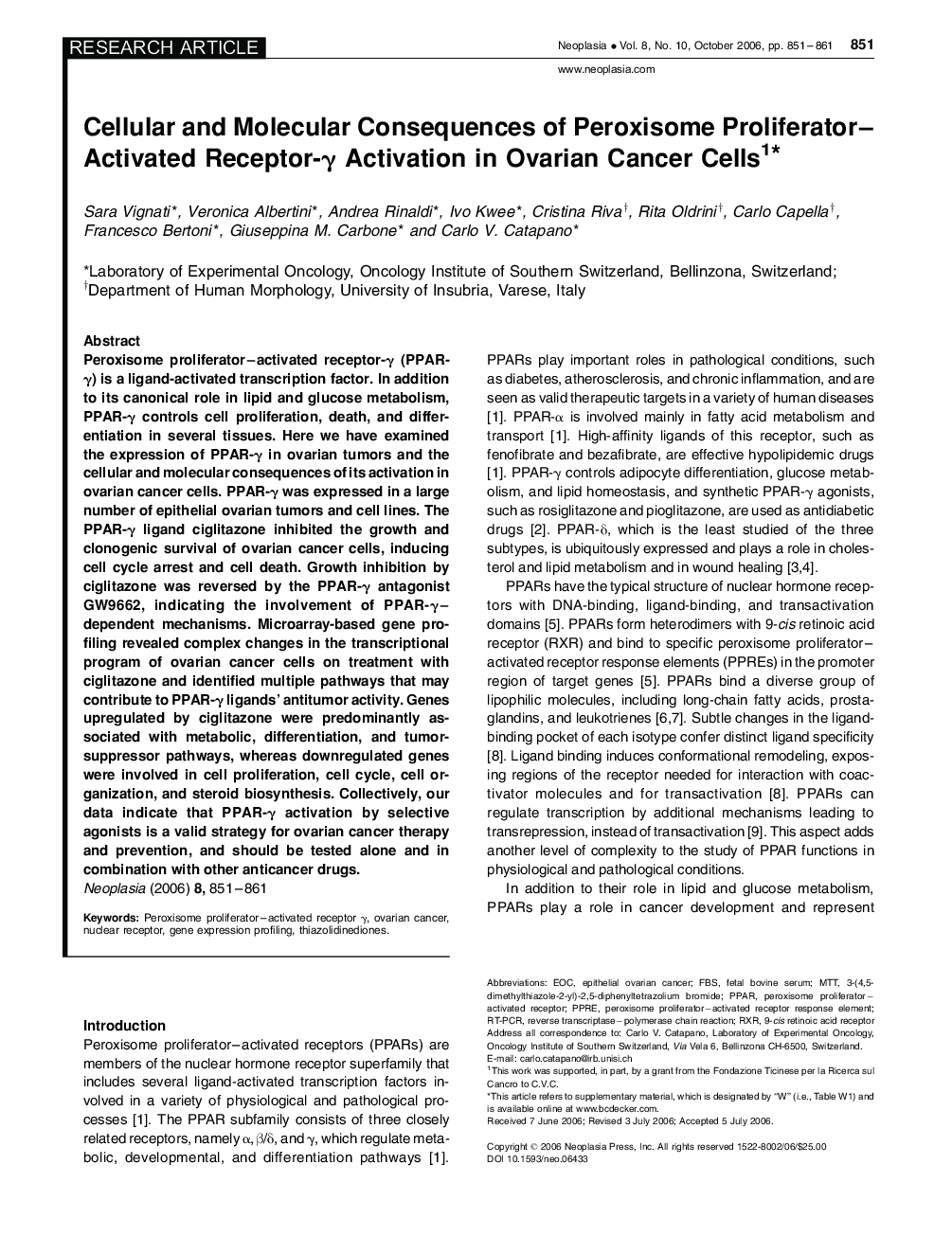| Article ID | Journal | Published Year | Pages | File Type |
|---|---|---|---|---|
| 2152312 | Neoplasia | 2006 | 22 Pages |
Abstract
Peroxisome proliferator-activated receptor-δ (PPAR-δ) is a ligand-activated transcription factor. In addition to its canonical role in lipid, glucose metabolism, PPAR-δ controls cell proliferation, death, differentiation in several tissues. Here we have examined the expression of PPAR-δ in ovarian tumors, the cellular, molecular consequences of its activation in ovarian cancer cells. PPAR-δ was expressed in a large number of epithelial ovarian tumors, cell lines. The PPAR-δ lig, ciglitazone inhibited the growth, clonogenic survival of ovarian cancer cells, inducing cell cycle arrest, cell death. Growth inhibition by ciglitazone was reversed by the PPAR-δ antagonist GW9662, indicating the involvement of PPAR-δ- dependent mechanisms. Microarray-based gene profiling revealed complex changes in the transcriptional program of ovarian cancer cells on treatment with ciglitazone, identified multiple pathways that may contribute to PPAR-δ ligands' antitumor activity. Genes upregulated by ciglitazone were predominantly associated with metabolic, differentiation, tumorsuppressor pathways, whereas downregulated genes were involved in cell proliferation, cell cycle, cell organization, steroid biosynthesis. Collectively, our data indicate that PPAR-δ activation by selective agonists is a valid strategy for ovarian cancer therapy, prevention, should be tested alone, in combination with other anticancer drugs.
Keywords
FBSRT-PCRPPAR3-(4,5-dimethylthiazole-2-yl)-2,5-diphenyltetrazolium bromideRXREOCMTTPPREthiazolidinedionesOvarian cancerEpithelial ovarian cancerfetal bovine serumperoxisome proliferator-activated receptor response elementgene expression profilingReverse transcriptase-polymerase chain reaction9-cis retinoic acid receptorperoxisome proliferator-activated receptorPeroxisome proliferator-activated receptor δNuclear receptor
Related Topics
Life Sciences
Biochemistry, Genetics and Molecular Biology
Cancer Research
Authors
Sara Vignati, Veronica Albertini, Andrea Rinaldi, Ivo Kwee, Cristina Riva, Rita Oldrini, Carlo Capella, Francesco Bertoni, Giuseppina M. Carbone, Carlo V. Catapano,
